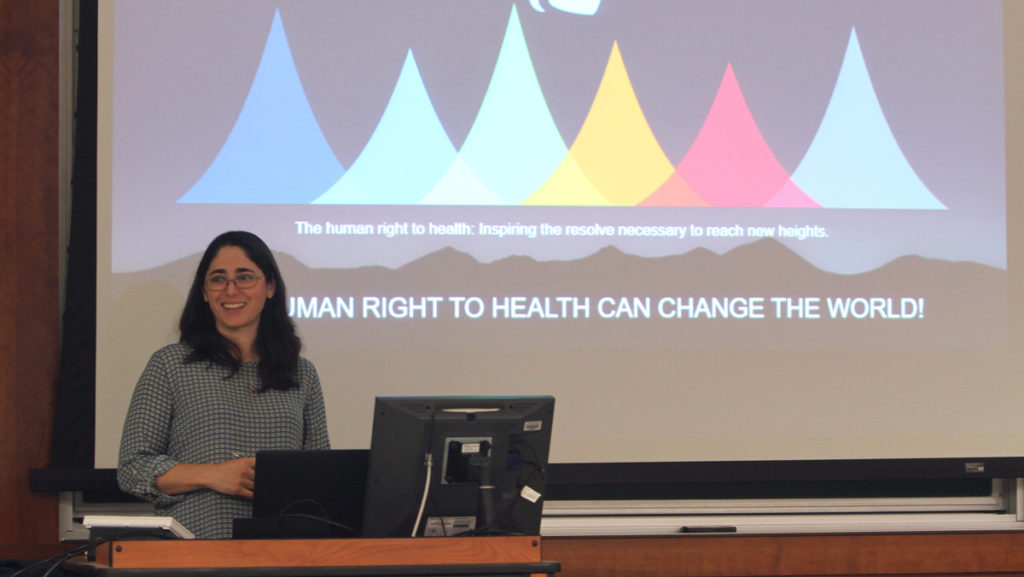Nicole Hassoun, associate professor in the Department of Philosophy at Binghamton University, said that it is difficult for policy makers to implement change when many Americans do not even believe people having access to healthcare is a basic human right, at an event on April 19.
Hassoun argued that the current issues within the healthcare system in the United States can be improved if people are willing to implement policy solutions like easier access to affordable care. Hassoun’s presentation was organized by Craig Duncan, associate professor and chair of the Department of Philosophy and Religion at Ithaca College. Approximately 25 people attended the event in 104 Park Center of the Business School.
“Health is a human right that I think is indispensable in the exercise of other human rights,” Hassoun said. “The human right to health includes more than just medicine. It also includes rights to the social determinants of health.”
Hassoun is a founding member of the advisory board for the Global Health Impact project. This project aims to extend access to health care by collaborating with policymakers to give medication to those who do not have access to health care, particularly those in developing nations. The project launched in January 2015. Additionally, she has published work on health care, economics and global health in journals and books.
The issue of whether or not health care is a basic human right is contested among politicians and citizens of the U.S. According to a 2017 survey from the Associated Press-NORC Center for Public Affairs Research, 37 percent of people in the U.S. do not believe the federal government is responsible for providing all citizens with health care coverage.
Obamacare covers 20 million Americans’ health care coverage, but currently, 12.4 percent of U.S. citizens aged 18–64 do not have a primary health care provider because of the rising costs in access due to copays and other costs. The U.S. is ranked lowest overall among developed countries in providing access to health, according to a study from 2014 by the Commonwealth Fund Commission. In terms of quality of care, the U.S. ranked fifth but came in last place in efficiency, equity and healthiness of citizens.
The Global Health Impact project is committed to the virtue of creative resolve. Hassoun said this means creating concrete policies by working with politicians to put the organization’s value into policy that all people are inherently deserving of health care coverage. She said people should question why these issues exist in modern society and what methods could be implemented to improve these issues and raise awareness about them.
After the presentation, there was a Q&A session with the audience. Topics such as the stigma in the U.S. around socialized health care, the effects of not having socialized health care and how to implement socialized health care in the U.S. were discussed.
Junior Hana Motoki said she was glad that Hassoun could speak to the positive effects of socialized global health care because it is seen as a polarized issue in the U.S.
“I feel like, these days, you usually hear about negative aspects of global health [care],” Motoki said. “It was cool to hear how you don’t necessarily have to choose between one or the other but instead use the concept of creative resolve to combine the two.”
Sophomore Tamia Taylor said Hassoun’s presentation was extremely informative.
“I was able to learn something new about how health care policies around the world can be improved,” Taylor said. “Hopefully, I can do more research on this topic in the future to gain more knowledge on it.”








